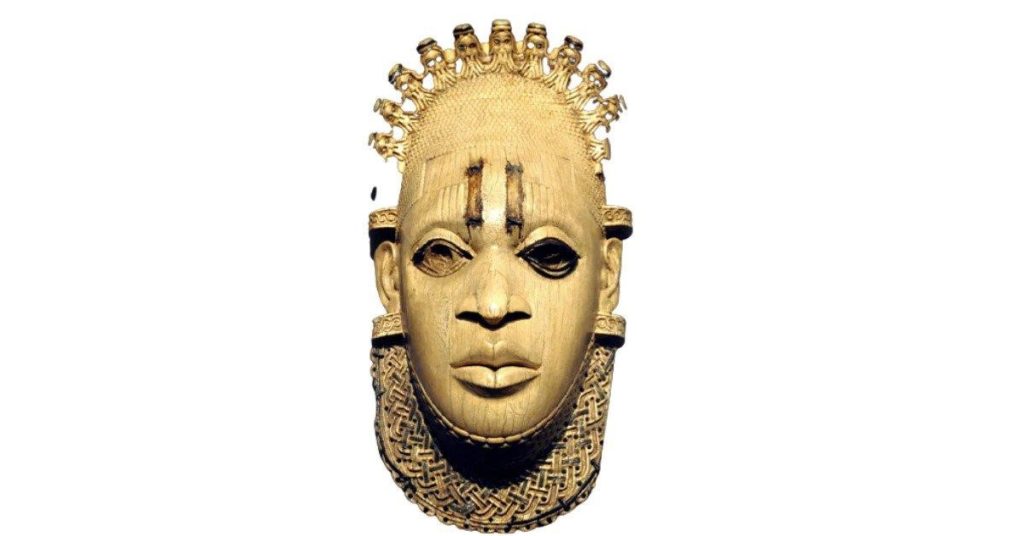
Queen Idia: The Fearless Warrior and First Iyoba of Benin Kingdom.
Queen Idia was born in the 15th century in a town called Uzeghudu (now Edo State). She was married to Oba Ozolua and her son, Osawe, was crowned Oba of Benin Kingdom with the title “Esigie” (Oseigie). The Egua-Iy’Oba (The Queen Mother’s Palace) was built for her in lower Uselu, and it still serves every Iy’Oba (Queen Mother) in the Benin Kingdom.
Queen Idia was a remarkable woman who enjoyed the privilege of recommending her choice of Chiefs to the Oba, who then conferred the title on them.
Read Also: Ojude Oba Festival: A Cultural Display of Unity and Heritage
The first woman to go and fight in war in the Benin Kingdom, Queen Idia was a fearless Army General who led the armies of Benin in several successful battles. One of such was the Idah War of 1515 – 1516 A.D., in which her Army fought bravely. She also used her powers and knowledge of medicine to help her son overcome his enemies.
Queen Idia also acted as the Oba’s agent in some villages. In this capacity, she acted as the fountain of their customary law, held court with the chiefs daily to attend to complaints from the subjects.
Apart from settlement of various community and land disputes within the kingdom and other disagreements, Queen Idia gave approval for the commencement of all major festivals and rituals in those villages.
Several symbolic images of art identified with Queen Idia indicate her early contacts with the Portuguese, and they have become some of the most popular works of art in world black history. These include the Bronze ancestral Queen-Mother Head, the Bronze Bells, the traditional Sword (“Eben”), the carved wood rattle Staff (“Ukhurhe”), and many more.
The image of Queen Idia is the popular Festac Head that was used for the celebration of the Nigerian FESTAC ’77 – Festival of Arts and Culture in 1977 that was attended by dignitaries all over the world. Queen Idia also started “Ekasa” – a special dance which forms part of the Royal Ceremonies till date.
Queen Idia played a significant role in the rise and reign of her son, Oba Esigie, and she was the first Iyoba (Queen Mother) of Benin when Esigie conferred upon her the title and the Eguae-Iyoba (Palace of the Queen Mother).
